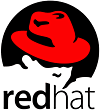

Businesses require reliability, stability and compatibility. It
’
s no wonder business owners prefer to stick with the status quo — it
’
s what works for them.
Paying too much for licenses is not good business. Using Linux in your data center is one way to save money. Here are ten Linux distros to consider.
Those entrepreneurs who take the time to research the possibilities outside that status quo find a treasure trove of free and low-cost alternatives. When it comes to software, Linux is at the top of that list. With more than 100 complete distributions from which to choose, Linux is far from a single entity.
Linux powers the majority of the world’s websites, data centers, and development efforts. Consider this list of ten business-oriented Linux distributions as an all-in-one-place collection of information on the best of those possibilities. The list is in no particular order.

Red Hat Linux is at the top of any Linux distribution list that’s related to business use. It is the most successful Linux company to date. Red Hat had business in mind from day one with its focus on enterprise performance, usability and security. Red Hat took an early lead in corporate deployments and has never left that position.
Today, Red Hat not only still boasts its elite position in the Linux server market but also continues to make strides in virtualization, security and e-commerce. Red Hat is for serious business.
SUSE Linux, now owned by Micro Focus, still provides excellent support on a very stable and mission-critical capable operating system. Stability is the operative word for SUSE Linux Enterprise Server (SLES). While SLES might not make your technical staff excited with leading-edge technology, you’ll sleep better at night knowing you have the top-notch stability and security of SLES maintaining your business services.
And when you need help, SUSE support is there for you. SUSE support ranks number one by its customers and partners. Stability, security and excellent support all spell business in a climate that’s hungry for customer dedication. SUSE receives recommendations from Microsoft, SAP and VMware.
Mandriva has a very basic philosophy for its Enterprise Server system: simplicity, high-performance and accessibility. Its focus is on lowering your cost of ownership and on simplifying your environment through easier management, virtualization, and stability.
One of the flagship services is Mandriva Directory Server (MDS). MDS is an easy-to-use and easy-to-manage LDAP solution. MDS manages Windows, Linux, Macs, identities, network resources and rights through a web interface. From deployment to disposal, MDS handles your user environments with ease.
MEPIS, like most other Linux distributions, offers both a desktop and a server setup. No distribution is as well documented as MEPIS. There are easy guides on the main web site to help you through almost every possible scenario imaginable. MEPIS has an excellent reputation among techies for its ease of use and support.
MEPIS is one of those “best kept secrets” for business technology, but now the word is out. Principle Warren Woodford has more than four decades of technology and product development. Two of those decades have been spent on business solutions. If you want your technology to work together like it’s supposed to, consider MEPIS as a serious contender.

If you didn’t know that Oracle produces its own Linux distribution, you’re not alone. Oracle’s Unbreakable Linux (OUL) is Red Hat Enterprise Linux fortified with Oracle’s own special Kool-Aid. Optimized for Oracle’s database services, OUL is a heavy contender in the enterprise Linux market. If you run Oracle databases and want to run them on Linux, you know the drill: Call Oracle.
Other than an “unbreakable” version of Linux, what else does the mighty Oracle offer your business? Oracle offers excellent enterprise-level support, comprehensive management, indemnification and testing at very reasonable prices. If you already run the world’s best database, you should run it on the world’s best operating system: Linux.
Ken Hess is a freelance writer who writes on a variety of open source topics including Linux, databases and virtualization. He is also the coauthor of Practical Virtualization Solutions.
Follow ServerWatch on Twitter and on Facebook


Ken Hess is an Enable SysAdmin Community Manager and an Enable SysAdmin contributor. Ken has used Red Hat Linux since 1996 and has written ebooks, whitepapers, actual books, thousands of exam review questions, and hundreds of articles on open source and other topics. Ken also has 20+ years of experience as an enterprise sysadmin with Unix, Linux, Windows, and Virtualization.
Property of TechnologyAdvice. © 2025 TechnologyAdvice. All Rights Reserved
Advertiser Disclosure: Some of the products that appear on this site are from companies from which TechnologyAdvice receives compensation. This compensation may impact how and where products appear on this site including, for example, the order in which they appear. TechnologyAdvice does not include all companies or all types of products available in the marketplace.